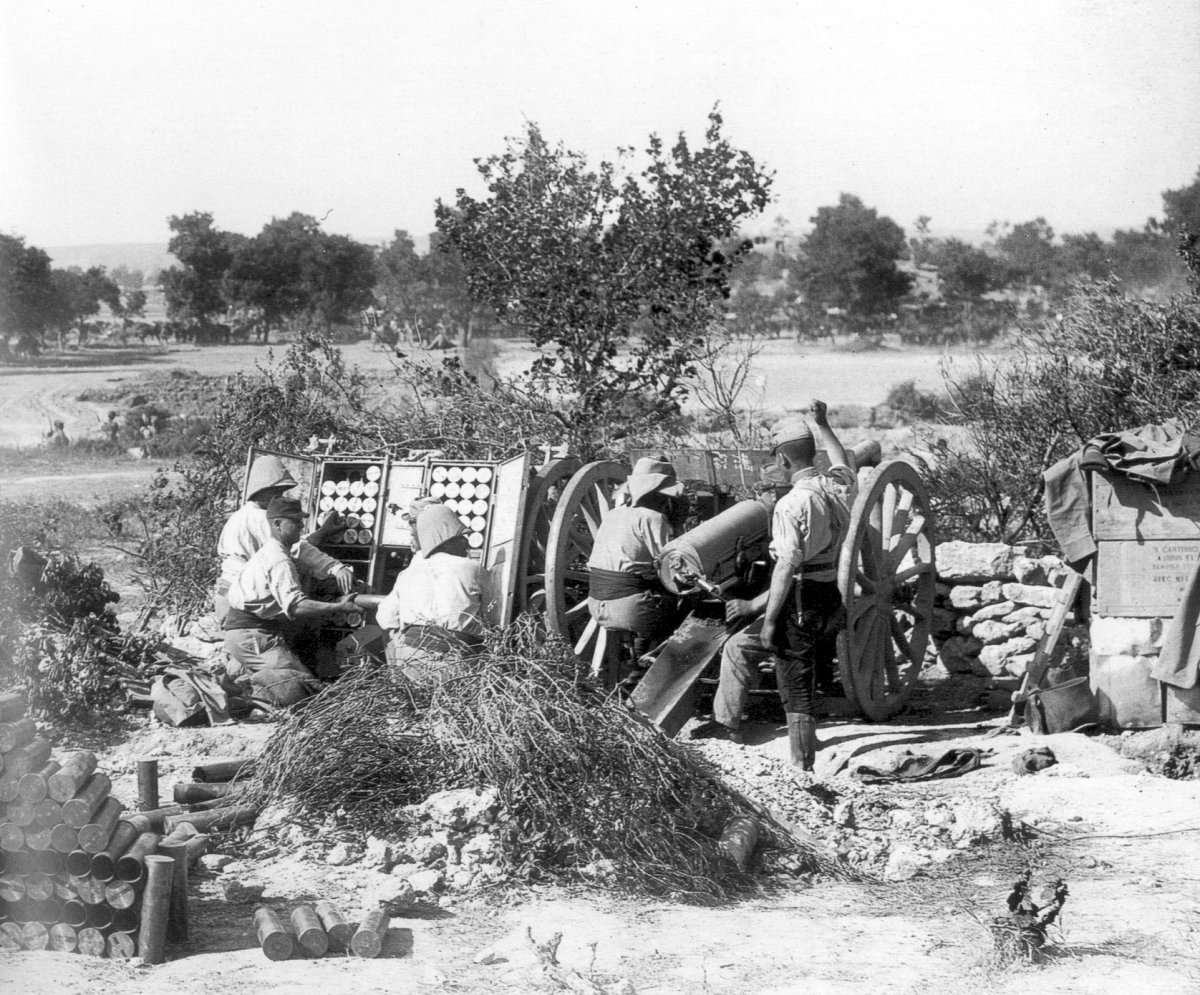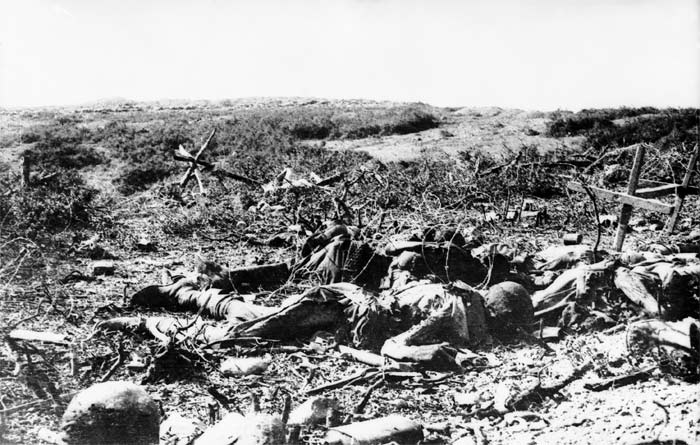Allies Fail to Take Key Hill and Village
Stiff Turkish Defenses; Great Losses on Both Sides
Special to The Great War Project
(4-6 June) June 4th a century ago: One of the bloodiest days of the war.
Fighting is sharp and bloody on the Gallipoli peninsular in western Turkey. A major battle is shaping up for the village of Krithia and the heights of the Gallipoli peninsula, known as Achi Baba.
For a month the forces of the Allies – Britain and France – are attempting without success to reach these strategic spots. “A month of horrific violence,” writes historian Eugene Rogan, leads to nothing but death and deadlock.
“Both sides dug in,” reports Rogan, “to hold the lines for which tens of thousands had fought, suffered terrible wounds, and died.”
The Turks have the upper hand because they hold the higher ground.
“While the Turks had failed to drive the invaders into the sea,” Rogan writes, “they had succeeded in preventing the Allies from reaching the high ground.” They are contained in small enclaves “subjected to regular artillery, shrapnel, and gunfire from well-hidden snipers…
“…It was trench warfare with all of the attendant horrors known to the soldiers of the Western Front.”
The British view the situation at Gallipoli with mounting concern. None of the British plans has achieved its objectives. It is failure at enormous cost.
The disaster at Gallipoli brings a reshuffle of the government in London. The new leaders form a special committee to run the Gallipoli/Dardanelles campaign.
As disastrous as the campaign is, the British committee rules out retreat. The British leadership believes an admission of defeat there “would almost certainly lead to risings all over the Moslem world,” according to the official British historian of the campaign.
There is indecision in the British ranks, and it is undermining the British campaign. Writes Rogan,…
“…Every delay gave the Ottomans and their German allies precious time to build up their defenses further to make Gallipoli impregnable.”
A chaotic web of trenches now dominates the Gallipoli peninsula. “Those who served both on the Western Front and at Gallipoli,” reports Rogan, “found the Turkish front by far the more relentless of the two.”
And that is true of both sides, reports Rogan. “Invaders and defenders shared the squalor and horrors of trench warfare equally.”
One key aspect of the Gallipoli campaign is the Turkish artillery. “From the moment a soldier arrived in Gallipoli,” writes Rogan, “he lived with the sound of artillery.”
The Allies are most exposed. German submarines drive away the British battleships, which are deployed to support the land attack. Thus “Ottoman gunners on the Asian shores of the straits fired with impunity,” Rogan reports, “hitting French lines with particular severity.”
Allied troops cannot locate the Ottoman gun emplacements. The Turks employ camouflage and decoy cannons. Notes one Ottoman artillery officer, “We were able to fire artillery wherever we wanted. We were able to make war in a way that suited us.”
That’s why it is so crucial that the Allies reach Achi Baba hill. But they fail. On June 4th a century ago “more than 30,000 British and French troops took part in the attack,” writes historian Martin Gilbert. “At one point the Turks had built a dummy trench. The British bombarded it, then the men advanced, only to find that the real trench beyond was intact and fully manned.”
The British take the real trench, but with great losses. They are then caught in a crossfire of cannons, the Turkish and by mistake, their own.
Both sides are exhausted by this battle.
Afterward, the writer A.P. Herbert writes a poem about Gallipoli. The first stanza reads:
This is the Fourth of June
Think not I never dream
The noise of that infernal noon,
The stretchers’ endless stream,
The tales of triumph won,
The night that found them lies,
The wounded wailing in the sun
The dead, the dust, the flies.


